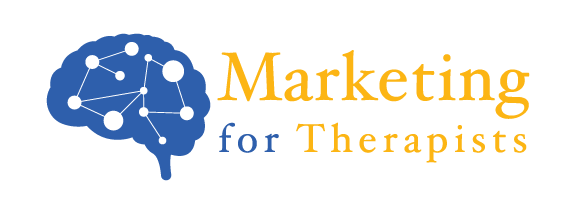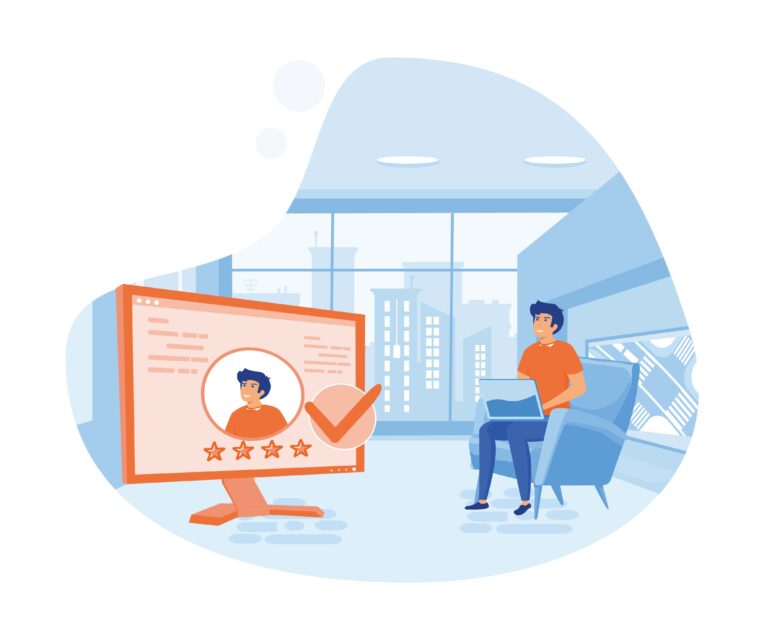Today I am going to cover SPECIFICALLY marketing for therapists.
If you have a private practice and are looking for new ways to get new clients- you came to the right place.
In this post we will cover:
- Building your digital marketing around your website
- How to get QUICK traffic to your website
- Your long term plan for increasing your traffic
- How to use data to get better results from your marketing efforts
Find Out How We Can Help Grow Your Business
Let’s discuss your marketing needs, and we’ll help you put together a digital marketing strategy that will generate more leads and save you time.
Before We Get Started
If you are new to marketing your business or you just started your private practice- there are a ton of good resources out there.
Below is a list of resources out there that can really help you jumpstart the marketing efforts for your private practice.
- Google Ads For Therapists: 7 Steps To Book More Clients
- The Ultimate Guide to SEO For Therapists [Update 2021]
- Marketing for Therapists: 7 Unbeatable Marketing Strategies for Therapists [Update 2021]
- 15 Actionable Tips & Strategies For Marketing Your Counseling Practice [Update 2021]
Start With A Good Website
Before we get into the weeds about your website I want to explain your marketing strategy in the EASIEST steps- from the experience of your client.
- Client Googles “therapist near me”
- Client clicks on your website in the search results
- Client sees if you are a good fit for them
- Client engages with your call-to-action
- Client enters your lead “system”
Traffic, Call-To-Action, Customer Experience.
Or as we cleverly call it:
Connect.
Convert.
Close.
Now that we did “marketing-at-a-10,000ft-view” let’s talk about your website.
Take a moment to look at your site and ask yourself the following questions:
- Am I happy with my website?
- Do I feel like my website reflects my business/brand well?
- Does my website do a good job connecting with my ideal customer?
- Does my website have a very clear call-to-action?
If you answered no to any of these questions (or you are trying to run your private practice solely from a Psychology Today listing) we will need to address this first.
The first thing to touch on with a website is your call-to action.
For therapists- we have tried EVERYTHING. And what we came up with is so simple. So standard.
Offer a free consultation.
See our clients website HERE
And also HERE
And also HERE
Notice a pattern?
All of our clients offer a free consultation anywhere from 15-30min.
This has (by far) been our best performing call-to-action.
Other therapists have used call-to-actions like brochures/e-book resources, quizzes, contact forms, and more.
But the important thing to remember about your call-to-action is:
- It is in the banner of your home page
- It lives on the top of every page
- It on the bottom of every page
Your website should basically say “Hey, book a consultation with me!”
There are a few other things to consider when auditing your website.
First, is your website well designed?
I could write another 2,500 word blog post on this subject but for ease of reading let’s keep it simple.
A good looking website- looks good. An ugly website- is…. well ugly.
If you don’t have a background in branding or design (which most of us don’t) I have a very easy rule to live by.
Don’t cheap out on a website.
A good marketing strategy could easily double your caseload.
And your website is the life blood of your marketing strategy.
So if you want to cut corners… Your website is just not the place to do it.
Second, is your website easy to use?
We typically call this the barrier to entry.
Let’s use the consultation call-to-action as an example.
Are your clients filling out a general contact form, then maybe after a few back-and forth emails you lock down a time to meet?
Alternatively, you could use a service like Calendly which would allow your clients to book instantly online with a time you’ve pre-determined to be available.
Simple. Easy.
If you can tell- simple is really becoming a theme.
Third, is your website mobile friendly?
This is a problem. But it is getting better everyday.
Grab your phone and pull up your website. Does it look good on mobile?
If the answer is no- you’ll need to fix that ASAP.
Fourth, is your website consistently adding new content?
For this one you simply need to ask yourself- when is the last time a page was added to your website?
This typically falls under the category we call “making google happy” (more on that later)
Websites that are consistently adding new content or getting upgrades help substantially with your traffic.
Fifth (and final), is your website optimized for search engines?
Speaking of Google.. Do you know what keywords/search terms your website is currently ranking for?
If you have a great looking website, but you are not optimized for search- you are basically the equivalent to John Mayer- all talent and no record label.
You need to make sure that your website will show up when people are searching for you.
If you want more in-depth information on SEO tips- see the live above in the intro.
How to get quick traffic to your website
If you made it this far into the blog- there is a good chance you skipped the last section and said “I already have a good website.”
My follow up question would be, how are your traffic metrics?
If you don’t know the answer- START HERE
Most therapists want to know the quickest way to bring traffic to their website.
The easiest solution is Google’s pay-for-rankings model
(cough) I mean Google’s Pay-Per-Click model.
What I am referring to is Google Ads.
If you’ve asked yourself- Should I focus on social media or search engines, the answer is very simple.
Search engines.
How do I know?
I’ve spent tens of thousands of dollars on both and the return-on-investment was clearly search engines.
It’s actually pretty obvious.
When a potential client of yours is seeking therapy do they go on instagram and wait for an ad to be shown to them.
Of course not. That’d be ridiculous.
They go on Google and type something like “therapist near me”
Or “CBT near me”
Or “Best therapist in [insert your city here]”
You get the point.
The problem is- you almost certainly won’t show up on the first page of Google’s results for those searches.
So this is where Google ads is the best jumpstart to a new campaign.
You’ll pay an average of $2/click to show up at the top of the search results when someone searches for your services.
We typically recommend spending $500/mo on advertising services to get 3-5 new clients per month and do this until you can improve your organic Google rankings.
Just make sure for every service you advertise for you have a dedicated landing page created to send traffic to.
(More on that HERE)
Your long term plan for increasing your traffic
So you have Google Ads running. But let’s say your average cost per client is $100.
How can you lower your cost-per-acquisition or more simply cost-to-get-client?
There are 2 answers to this question.
- Optimize your Google Ads and put more budget into better performing ads.
- Focus on SEO efforts to improve traffic- by improving your rankings
I’ve heard so many explanations of SEO that I’ve made it my life’s work to simplify the explanation.
I came to this:
Make a list of keywords and stick to the formula: 1 Keyword=1 Page.
Example:
Keyword- “Therapist in New York City”
Page- Blog page www.yourwebsite.com/12-best-therapists-in-nyc
If this is still a bit confusing- here is a short explainer.
There are 2 types of keywords.
High intent. Low intent.
A high intent keyword is a search term that has a high probability of turning into a sale.
“Therapist in [your city]”
A low intent keyword could be:
“How much does therapy cost?”
So why would you try to rank for low intent keywords?
Well the answer is a bit confusing but stay with me:
Ex. When I type in “therapist in Minneapolis” Google will look at all websites that have that term on there site.
Then it will rank them by a score called “domain authority score”
This is a score given to websites based on many factors. More on that HERE
To raise your domain authority score you basically need a website that is “bigger” or has more visitors.
Let’s take my previous keywords as an example
Notice that “how much does therapy cost” has a significantly higher search volume?
So let’s do a quick solution:
I write a blog titled “how much does therapy cost”
It brings 6,000 visitors to my site every month.
It doesn’t get my a single client BUT it raises my domain authority score significantly.
Now, let’s say I optimized my homepage for “therapist in minneapolis”
Client then searches “therapist in minneapolis”
Google looks at all websites and sees that my website gets more visitors monthly than my competition.
So I rank #1 and client clicks on my site and schedules a consultation (because my call-to-action is easy, and well thought out)
You see how it ties together?
Here is the 10 second version:
Optimize your main website for “high intent keywords”
Write blogs to attack low intent high volume keywords
This will raise your domain authority score
Your domain authority score will rank your high intent keyword pages better
You get more clients
To summarize- if this strategy now brings in 50% of clients through digital marketing…. And your original cost-per-client was $100 (see above)…
Now you’ve doubled your client intake and lowered your cost-per-client to $50.
**As a side note**
Find Out How We Can Help Grow Your Business
Let’s discuss your marketing needs, and we’ll help you put together a digital marketing strategy that will generate more leads and save you time.
How to use data to get better results from your marketing efforts
I want to start off with the most important metrics first.
And this is outside of digital marketing. BUT every private practice should have these numbers..
1- Average cost-per-session
2-Average consultation-per-client
3-Average client-session-retention
4-Average client-lifetime-value
If you don’t have these numbers (or your are curious)- I will share ours.
Our average private practice charges $175/hour session
1-in-2 consultations turns into a client
An average client stays for 20 sessions
Average client lifetime value is $3500
Why are these metrics important?
To know how much you should spend to get a client.
Our average is 15% or more importantly:
10% to maintain caseload
20% to grow your practice
Now these numbers are just from my personal experience but it has worked really well for our clients thus far.
(Did you know that we are the only agency that charges per consultation?)
Check out our Therapy Services Here!!
The other metrics that are important you can get through 3 FREE services.
- Google Ads
- Google Analytics
- Google Search Console
Using these tools you can find your total traffic, traffic that came from Google, and traffic that came from Google Ads.
If you don’t want to visit 3 different sources to collect data- guess what?
There is a free tool you can use to combine data called Google Data Studio.
HERE IS A BEGINNERS GUIDE TO DATA STUDIO
Using Google Ads, Analytics, and Search Console you can find out:
How many clients came from Google
How many visitors came from Google
How many visitors came from other sources (ie. Psychology Today)
What is your average cost per click
What is your average cost per consultation
Which blogs bring in the most traffic
How long do visitors stay on your site
How many pages to visitors go to on your site
Etc…
Every therapist is a little different in their marketing efforts but the point is to assess what YOUR KPI’s are.
These are your “Key Performance Indicators” or metrics that directly affect your bottom line.
Here is a great resource on KPI best practices
Using these metrics you can find out exactly what return-on-investment you are receiving from your marketing efforts and make intentional changes to optimize your campaign.
And that’s it!
I know this is a very high level look at marketing…
But if you have specific questions or other topics you would like to cover- we are here.
Feel free to book a FREE consultation with me (Dillon Jones) to discuss your marketing strategy for this year.
You can book a free 30 min marketing assessment here:
https://johnsonjonesgroup.com/assessment
And if you are still unsure..
Or you are asking yourself if this really works…
Then ask yourself:
How did I find (and read) this entire blog??
Google?
Believe me. It works.
I hope we get the chance to connect soon.







